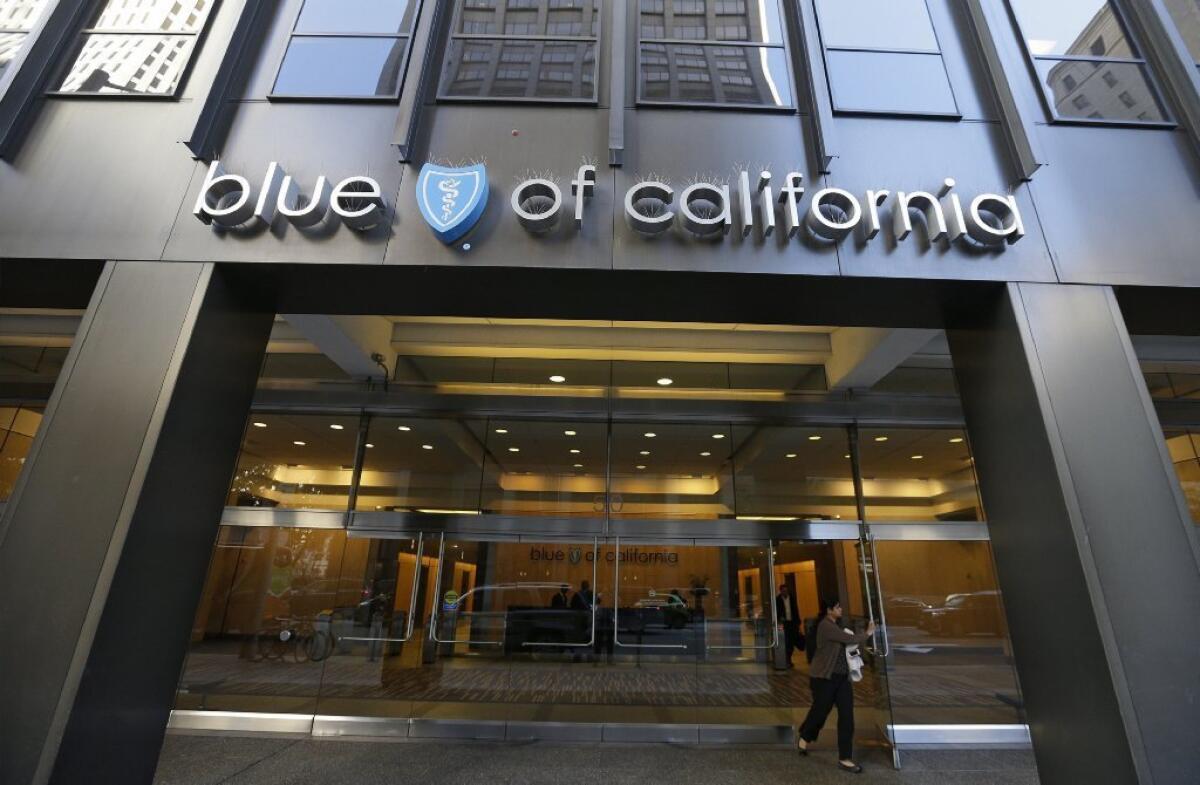Blue Shieldâs $1.25-billion deal for Care1st faces more state scrutiny

State regulators will hold a hearing next month on Blue Shield of Californiaâs proposed acquisition of the Care1st health plan. Above, Blue Shieldâs San Francisco headquarters.
Bowing to demands from consumer advocates, state regulators will hold a hearing next month on Blue Shield of Californiaâs proposed acquisition of Medicaid insurer Care1st for $1.25 billion.
The California Department of Managed Health Care said both companies will explain their rationale for the deal at the June 8 hearing in Sacramento. The public will also have a chance to chime in.
One topic sure to come up is the recent news that the California Franchise Tax Board revoked Blue Shieldâs tax-exempt status after a lengthy audit.
The tax boardâs decision and the big acquisition have prompted more questions about whether Blue Shield is serving the public interest as a nonprofit health plan.
Blue Shield had already drawn the ire of consumer groups for stockpiling more than $4 billion in financial reserves while continuing to hike up rates for families and businesses.
âWe view DMHCâs role as especially critical at this juncture with the confluence of Blue Shieldâs proposed acquisition, the withdrawal of its state tax-exempt status by the Franchise Tax Board, and the concerns we have previously expressed about Blue Shieldâs surplus growth,â four consumer groups wrote in a letter last month to state officials.
The four groups are Consumers Union, Health Access, Western Center on Law & Poverty and the California Public Interest Research Group.
Blue Shield spokesman Steve Shivinsky said the company âwelcomes the opportunity to share how the acquisition of Care1st furthers our mission by serving Medi-Cal beneficiaries, and to answer any questions that the DMHC may have.â
The San Francisco insurer is protesting the tax board ruling, and it said it plans to remain a nonprofit regardless of the outcome.
Michael Johnson, a former public policy director at Blue Shield and now company critic, applauded the stateâs move to delve deeper into the deal.
âThe $1.25 billion that Blue Shield proposes to spend would come from nonprofit assets that belong to the community and are supposed to be used exclusively for community benefit,â he said.
In March, Johnson launched an online petition calling on Blue Shield to convert into a for-profit company and transfer billions of dollars in assets to the public that could be used to strengthen healthcare safety-net programs such as Medi-Cal.
A spokesman for the managed-care agency said thereâs no timetable for a decision on the Care1st deal. The Monterey Park insurer primarily serves Medicaid managed-care patients.
At $4.2 billion, Blue Shieldâs reserves are at nearly 1,500% of the stateâs minimum threshold. The company plans to draw on its surplus to pay for the acquisition. Even with that, the company said it would still have 1,012% of the necessary surplus.
For comparison, the Blue Cross and Blue Shield Assn. requires its member plans to hold at least 375% of the minimum capital reserves to cover future expenses.
Insurers strive to be comfortably above any government threshold to avoid any concerns and to maintain the confidence of credit-rating firms.
Twitter: @chadterhune
More to Read
Inside the business of entertainment
The Wide Shot brings you news, analysis and insights on everything from streaming wars to production â and what it all means for the future.
You may occasionally receive promotional content from the Los Angeles Times.









